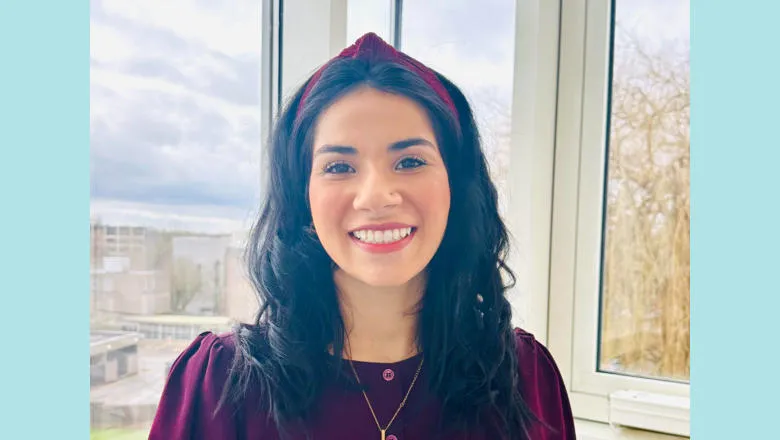I feel honoured to have been awarded this esteemed fellowship – it is very competitive – as it will help push my research ideas forward in preparation for my independent academic career."
Dr Aisha N. Busmillah
28 October 2024
Inaugural 1851–Ramsay Research Fellow joins King's Chemistry
Dr Aisha N. Bismillah will be hosted by the McTernan Group to create light-activated mimics of enzymes to help deliver medicine.

Dr Aisha N. Bismillah has joined the Department of Chemistry as the first Royal Commission for the Exhibition of 1851-Ramsay Memorial Trust Research Fellow, to create artificial mimics of enzymes that can help accurately deliver drugs.
The 1851-Ramsay Research Fellowship award from the Royal Commission for the Exhibition of 1851 funds early-career scientists and engineers of exceptional promise to conduct their own original research, with the aim of contributing towards a healthy and innovative national culture.
Dr Bismillah will be joining Senior Lecturer in Chemistry Dr Charlie McTernan across King’s and the Francis Crick Institute, building upon his group’s previous work in drug delivery. She will also be developing her own research programme working with dynamic molecular switches which are intended for use within medical applications.
Enzymes are biological catalysts present in the body that speed up key processes like digestion. These building blocks within the body have historically provided a blueprint for scientists – particularly chemists – to emulate and create artificial compounds that mimic their behaviour for use in areas such as the food and drink industry, cleaning products and beyond.
Generally, these artificial systems are made of chemical building blocks – which are often less specialised than their biological counterparts – and potentially toxic to humans. This is a particular problem for applications like drug delivery, which need to specifically target areas like cancerous cells, or risk harming healthy ones.
Dr Bismillah will build on Dr McTernan’s work using biologically compatible amino acids as a cage to house medicines like chemotherapy drugs, by using her expertise in light-activated switches as a mechanism to non-invasively ‘open’ and ‘close’ them. This will help improve precise targeting of drug delivery sites, potentially limiting the dangerous side effects of treatments like chemotherapy.
We’re delighted to welcome Dr Bismillah to the group, on a prestigious 1851-Ramsay Research Fellowship. While here, we’ll receive the benefit of her experience in chemical- and light-based photoswitchable systems which will extend our work. At the same time, she’ll acquire state-of-the-art training in a rich area of biochemistry at a world-class institution."
Dr Charlie McTernan
As the first Royal Commission for the Exhibition of 1851-Ramsay Memorial Trust Research Fellow Dr Bismillah said, “I feel honoured to have been awarded this esteemed fellowship – it is very competitive – as it will help push my research ideas forward in preparation for my independent academic career. My research ideas merge supramolecular chemistry with biochemistry and King’s is providing the opportunity to work with leading experts in the field like Charlie and Professor Andre Cobb – it is a big draw to me, as well as the opportunities offered by the Francis Crick.
“The King’s/Crick community has already been incredibly supportive. As a woman of colour in science, I also want to use my experience to reach young scientists (specifically women) who may otherwise not see themselves in the field and I know that’s something both institutions offer me the chance to do. It’s an empowering atmosphere where I feel free to explore my own research ideas and just do some great science.”
Dr McTernan said “We’re delighted to welcome Dr Bismillah to the group, on a prestigious 1851-Ramsay Research Fellowship. While here, we’ll receive the benefit of her experience in chemical- and light-based photoswitchable systems which will extend our work. At the same time, she’ll acquire state-of-the-art training in a rich area of biochemistry at a world-class institution which will prepare her for her independent academic career.”


